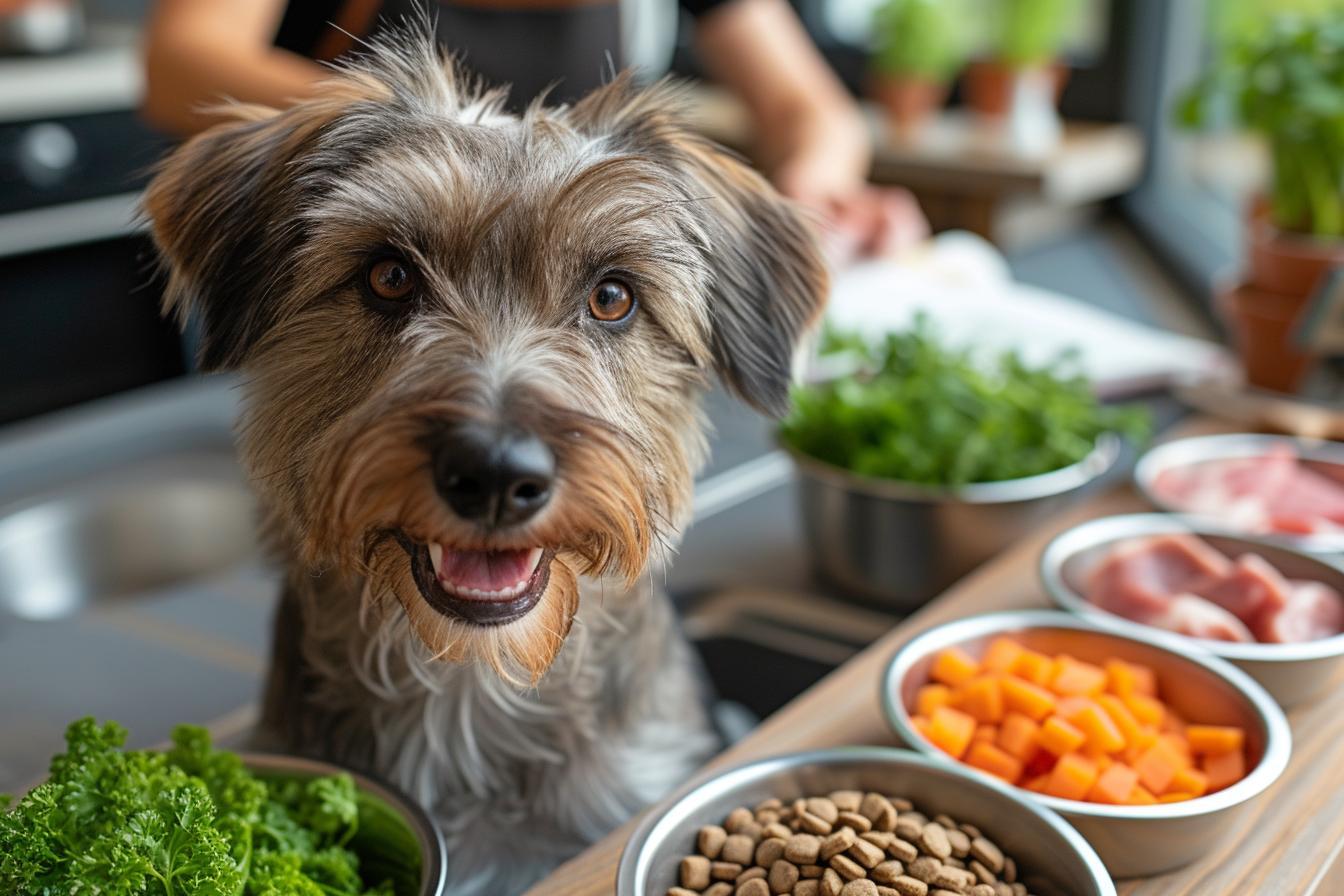The Irish Wolfhound, this gentle giant with Irish roots, has a heart as big as its stature. Its health and well-being depend greatly on a balanced and adapted diet. In a maze of options and sometimes contradictory theories, discerning the best diet for these giants can seem daunting. This article will guide you through the advantages of kibble, the interest of fresh food, and the importance of raw meat, while highlighting the crucial role of an animal nutritionist and the benefits of frozen food for the health of your Irish Wolfhound. Equipped with practical advice and valuable information, you will be able to compose the ideal menu for your large companion.
The crucial importance of diet for the Irish giant
As the foundation of its health and longevity, the diet of the Irish Wolfhound deserves special attention. This breed, known for its large size, requires a rich and balanced diet in calcium, protein, as well as vitamins and minerals. Adequate nutrition not only supports its impressive bone structure but also prevents certain conditions specific to its breed, such as gastric dilatation-volvulus.
The dietary controversies to unravel
At the heart of the debate, we find various theories on the best way to feed our four-legged companions. Between advocates of a traditional diet based on kibble and those advocating the benefits of raw meat or fresh food diets, it is not always easy to navigate. These different approaches all have their arguments and deserve our attention to make the best choice for our Irish Wolfhound.
Dog kibble: Advantages and selection
Kibble often represents convenience for many owners. Convenient, they offer a complete diet and are specially formulated to meet the needs of different breeds and sizes of dogs. However, it is essential to choose high-quality kibble, containing real pieces of meat and free from artificial fillers that could harm the dog’s health.
Does natural food have a place?
While some argue for a more “industrial” diet, others argue that fresh foods, especially raw meat, would be more suited to the natural needs of canines. This practice, known as BARF (Biologically Appropriate Raw Food), can be beneficial for the dog’s digestion and coat, provided that hygiene rules are rigorously followed.
The informed choice of fresh food
The possibility of feeding Irish Wolfhounds with fresh food is gaining popularity. Supporters of this approach highlight better palatability and potentially higher nutritional value. However, this requires a commitment to preparing balanced meals, taking into account the proportions of meat, vegetables, and other essential nutrients.
The valuable support of a canine nutritionist
Faced with these various options, the intervention of an animal nutritionist could be crucial. This specialist has the ability to assess the individual needs of each Irish Wolfhound and recommend a diet that will optimize its health and general well-being.
Frozen food: an intermediate solution?
As an alternative, frozen food offers a middle ground, combining the convenience of kibble with the benefits of a more natural diet. These products are generally designed to preserve a maximum of nutrients through the freezing process.
Choosing ingredients with discernment
Whether it’s kibble, raw food, or frozen food, ingredient selection is fundamental. It is important to prioritize foods that contain quality sources of protein, few grains, and natural additives such as fish oils, probiotics, not to mention essential vitamins and minerals.
Proportions, the key to a balanced diet
Any good diet for an Irish Wolfhound must respect the correct proportions between the different food groups. Balance between proteins, fats, carbohydrates, and fiber is necessary to maintain the dog’s good health and avoid deficiencies or excesses that could affect its physical condition.
Recommendations and advice for an adapted diet
Properly feeding an Irish Wolfhound involves following certain recommendations, such as avoiding overweight and adjusting the food intake to its activity level. Similarly, certain ingredients can be harmful and should be excluded from the diet. Constant vigilance is therefore required for any owner of an Irish Wolfhound.
By providing your Irish Wolfhound with a carefully chosen diet and staying informed through reliable sources, you will lay the foundations for a healthy and happy life for your companion. Remember that each dog is unique, and what works for one Irish Wolfhound may not necessarily be ideal for another.







